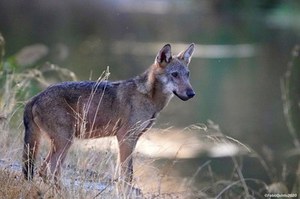WOLFNESS - Preserving the natural heritage of wolves: a multidisciplinary approach towards effective and socially acceptable management of wolf-dog hybridization across Europe
Preserving the natural heritage of wolves: a multidisciplinary approach towards effective and socially acceptable management of wolf-dog hybridization across Europe
WOLFNESS aims to improve the conservation status of the wolf (Canis lupus) in Europe consequently to its re-expansion, not only in natural contexts but also in anthropized areas, where the risk of anthropogenic hybridization between wolves and domestic dogs (WDH) could be high. The project will aim also to shed light on the dynamics of anthropogenic hybridization, to standardize investigation methodologies and improve the management and social acceptance of the phenomenon.
GOALS
Through an active collaboration between conservation biology expert researchers and socio-economic expert researchers, WOLFNESS will promote the application of novel multidisciplinary genetic, genomic, demographic and social approaches to ensure the effective and socially acceptable management of anthropogenic wolf-dog hybridization.
The main objectives of the project will be to: a) standardize the genetic and statistical analytical procedures for the identification of wolves with recent and ancient traces of hybridisation, b) quantify the proportions of admixture in the monitored European wolf populations; c) study the phenotypic effects of the domestic introgression, d) establish alternative management strategies of the phenomenon, e) evaluate the perception and social acceptance of management options of wolf-dog hybridisation, f) also evaluate the effectiveness of the current European policies in the management of anthropogenic of wolf-dog hybridisation.
MAIN ACTIVITIES'
Development of diagnostic tools to monitor anthropogenic hybridization and its potential effects on European wolf populations. WOLFNESS promotes novel multidisciplinary approaches, guaranteed by the participation in the project of some of the maximum European experts in the study of the biology and ecology of the wolf, to develop and apply reliable diagnostic tools to identify cases of anthropogenic hybridization between wolves and domestic dogs at continental scale and above all to evaluate the effects that this phenomenon might potentially have on the fitness and survival of wild wolf populations.
Evaluation of the phenotypic effects of domestic introgression in wolves. WOLFNESS will adopt "next-generation sequencing" techniques that will allow us to obtain entire genomes of wolves and individuals with different levels of wolf-dog admixture, which will be analyzed to estimate the potential effects that anthropogenic hybridization might have on the behavior of wild wolves, on their ecology, their role in natural ecosystems and their interactions with humans.
Evaluation of alternative management strategies and their social acceptability. Through a careful review of the scientific literature, direct observations within the territories of the partners involved in the project and the use of modeling and simulations, WOLFNESS will evaluate the feasibility and effectiveness of alternative strategies to manage anthropogenic hybridization. Furthermore, by analyzing psychological and anthropological aspects linked to anthropogenic hybridisation, WOLFNESS will also aim to maximize the social acceptance of a more effective management strategy of anthropogenic wolf-dog hybridisation.
Stakeholder engagement, policy impact and awareness. The results produced by WOLFNESS will be made available to the entire scientific community and citizens, and thanks to a continuous and synergistic interactions with expert researchers, stakeholders and political decision makers, they will be used to plan correct and appropriate conservation management strategies of large carnivores within the Habitats Directive, providing valid technical, scientific and political support at both national and European level.
Duration of the project
03/29/2023-03/29/2026
ISPRA is a fundamental partner of the project, contributing to coordinate many of the planned activities


